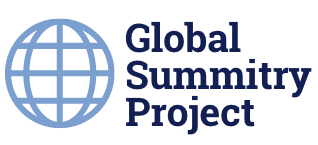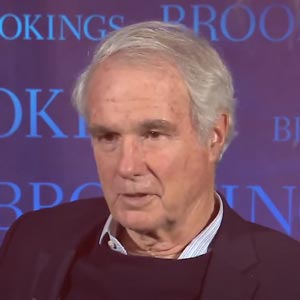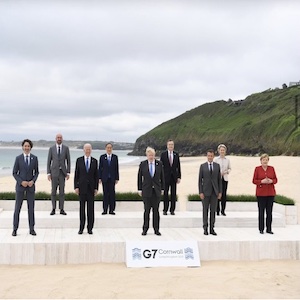Sherpas from G20 countries meet on July 12th and 13th for the first time since January to prepare for the Rome G20 summit at the end of October. The Rome G20 could potentially be the second most important G20 summit ever, with the other being the London G20 in 2009.
For the Rome G20 to be historic, there will have to be a transition from the value-laden and ideological Cornwall G7 summit just last month to a diverse and more powerful G20 meeting at the end of this October.
The West will need to shift gears and discourse to reflect the realities of the global order, especially the role of China in the 21st century. The fact is that there is no major issue facing the world today in which China does not have a significant role to play. There is no foreseeable future for multilateralism and the advance of global governance without involving China.
The G20 is the single most compelling platform for both mobilizing global action to meet today’s critical global governance challenges and for managing, as well the geopolitical tensions between the US and China.
China is a major player in the G20 and has played a leadership role in it, especially in 2009 and 2016. The G20 processes of meetings of ministers, working groups, Sherpas, and engagement groups as well as leaders provide vital opportunities to work constructively with China on major issues as long as there is a willingness in the West to deal with China in a professional, knowledge-driven setting to do the world’s work.
Europe, with five of the twenty G20 seats, is committed to strategic autonomy and pragmatic diplomacy with China. It is wary of following the US lead in confronting China first and cooperating with China later. Europe’s desired greater autonomy, while simultaneously strengthening traditional ties with the US, is an asset. Within the G20 ‘force-field’ this approach can help forge outcomes that are more complex and effective. This approach would be significantly better than the “ganging up” on China, which appeared to be the case at the G7 Cornwall Summit. At this summit gathering the primacy of ideology – ‘democracy versus autocracy’ seemed to dominate. The scope of G7 cooperation was limited to within the West in contrast to a more helpful and practical approach needed for the G20.
Other countries do not want to be forced to choose between the US and China in their strategic postures or in their economic relations. Many G20 member countries want to avoid this unnecessary binary, especially in a group where three other autocracies, apart from China, are also involved – Russia, Turkey, and Saudi Arabia.
The unique advantage of the G20 is that all the key countries are there. Value-laden conflict is present, but the variety of players and interests are sufficiently diverse to create a realistic foundation for working through issues rather than facing off across ideological divides that pose binary choices between false dichotomies. These value-laden concerns cannot and should not drive global conversations on the major challenges facing the G20 and the global order.
The G7 song sheet will not serve as a script for the G20. G20 Sherpas from G7 countries need to change the music. One way to shift the dynamics would be to focus on ways to strengthen G20 processes themselves by intensifying and broadening the dialogue, strengthening decision-making and follow through, and reconnecting leaders with their publics with improved G20 communications. Deliberately embedding the US-China relationship in the G20 is precisely the right context for working it out.
The real issue for the G20 Sherpas meeting on July 12th and 13th is how to use the more complex ‘force field’ of the G20 to drive a knowledge-based, ambitious agenda for the decade that capitalizes on the urgency of the current moment to generate agreements on systemic issues across value-driven divides. This achievement in itself would contribute to new ways of cooperation and new geopolitical dynamics that work with diversity as a central political reality rather than pushing models of governance and economic practice that focus debate on regime types and ideology.



